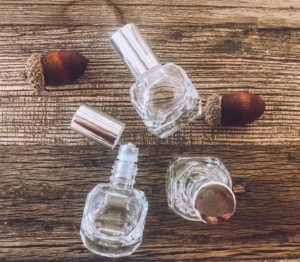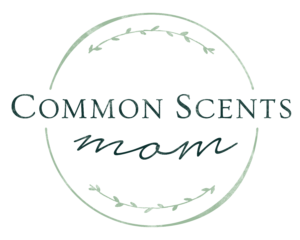If you have the Ancient Oils of Scripture Collection, here’s an AMAZING (and easy) perfume recipe to try! I think I’m in love! Seriously – so rich and exotic!
The inspiration came from a time when I stored my Scripture oils in a drawer in the bathroom. Every time I opened that drawer, my bathroom would be filled with the most intoxicating aroma – like a very expensive perfume – without the toxic after-scent! Even after I moved the collection to a closet, that drawer smelled like Heaven!
So I decided to just experiment and I’m thrilled with the result! Simply take 1 drop of each oil in the collection (except for Cassia – Cassia tries to take over, so leave her controlling-self home!).
Then finish it off with 1 extra drop of Rose of Sharon! Because…well, there’s just NOTHING like Rose of Sharon (aka: Cistus)!
Warning, again, this is a base-note heavy perfume; so it can be a powerful aphrodisiac! You are welcome, darling! ?
Solomon’s Secret Base Blend
2 drops Sacred Sandalwood
2 drops Cedarwood
2 drops Cypress
2 drops Frankincense
2 drops Hyssop
2 drops Myrrh
2 drops Myrtle
2 drops Onycha
4 drops Rose of Sharon (Cistus)
To make a:
Spray Perfume:
- 4 ml vodka
- 1 ml Solomon’s Secret Base Blend
- 5 ml glass spray bottle
Roller Bottle Perfume:
- 4 ml Jojoba or Sweet Almond Oil
- 1 ml Solomon’s Secret Base Blend
- 5 ml glass roller or spray bottle
_______________________________
Although this blend makes an intensely romantic perfume, I’ve found that it’s also a wonderful blend to use during prayer. I like to put 1 drop of this blend on a page of my Bible. Try it! You’ll see what I mean!
The Oils of Ancient Scripture set includes 10 single oils in 5-ml bottles:
- Aloes (Sacred Sandalwood): Believed to be made from fragrant sandalwood, aloes were a gift Nicodemus brought to Jesus. (John 19:39)
- Cassia: Cassia was a key ingredient in the incense used in temple worship. (Psalms 45:8)
- Cedarwood: The “cedars of Lebanon” were acclaimed for their durability and used to build Solomon’s famous temple. (1 Kings 4:33)
- Cypress: This oil is extracted from the cypress tree, which has wood so durable that the cypress doors of Rome’s St. Peter’s Basilica show no sign of decay even after 1,200 years. (Isaiah 44:14)
- Frankincense: The Hebrew word for frankincense, levonah, is used in the Bible 22 times, making it one of the most recognized materials in scripture. (Song of Solomon 3:6)
- Hyssop: Biblical references to this plant indicate it was likely used in practices and rituals intended to purify and cleanse. (Psalms 51:7)
- Myrrh: One of the key ingredients in Moses’s holy anointing oil, myrrh was highly regarded by Biblical figures such as David and Solomon. (Proverbs 7:17)
- Myrtle: Sukkot, commonly translated as Feast of Tabernacles, includes myrtle branches in its ceremony. (Nehemiah 8:15)
- Onycha: Onycha was an ingredient in the “pure and holy” perfume or incense the Lord commanded Moses to make. (Exodus 30:34)
- Rose of Sharon (Cistus): This rock rose has a sweet, honey-like scent and may be the flower referred to as the Rose of Sharon. (Song of Solomon 2:1)





